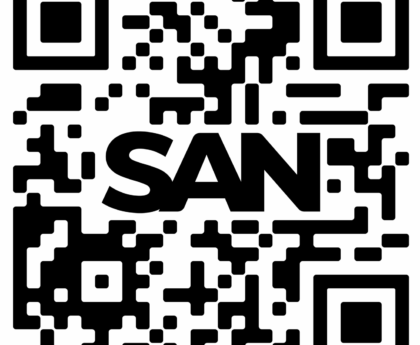Days before the deadline, the parliamentarian in the U.S. Senate is stripping portions of President Donald Trump’s tax and budget bill, referred to as the “one big beautiful bill,” after ruling that they’re not related to the budget.
Senate Parliamentarian Elizabeth MacDonough has released a series of decisions on several parts of the omnibus legislation. Those rulings mean that the bill would be subject to a 60-vote threshold of passage or fall prey to a Democratic filibuster if those provisions aren’t struck.

Download the SAN app today to stay up-to-date with Unbiased. Straight Facts™.
Point phone camera here
What is the Byrd rule?
The Senate has to work through any provisions that would violate what’s known as the “Byrd rule.” Named after former Sen. Robert Byrd, Section 313 of the Congressional Budget Act empowers the Senate parliamentarian to deem portions of a budget bill “non-budget related.” Doing so means passage of the measure with a flagged provision intact requires 60 votes in favor, or the opposition party can filibuster it.
What has Senate leadership said?
The series of rulings comes as Senate President John Thune, R-S.D., has warned lawmakers not to make any plans for next week until the “one big beautiful bill” has been passed. According to Punchbowl News, Thune plans to force through the Senate’s changes and dare House lawmakers to defy Trump’s wishes to sign the bill on Independence Day.
Adding to the uncertainty of the bill’s passage is recent polling showing many Americans either don’t favor provisions in the bill or don’t think that it would help their families.
Here are some of the high-profile measures that have been ruled out so far:
SNAP burden on states
MacDonough ruled on Saturday, June 21, that a provision passing a portion of the federal government’s cost burden down to states wasn’t budget-related. Striking this provision isn’t just crucial for political reasons; the measure was a revenue-positive move intended to reduce the gap created by extending Trump’s 2017 tax cuts.
No immigrant SNAP
Another provision would limit SNAP benefits to citizens and lawful permanent residents. MacDonough struck this provision as non-budget related on June 21.
Sanctuary city funding strip
One section MacDonough deemed ineligible would have allowed the federal government to limit grant funding for states or other jurisdictions that have laws limiting local cooperation with federal immigration enforcement, also known as “sanctuary” laws.
TRO restrictions
She also disqualified a measure that would have required litigants challenging a federal action to post a significant amount of money in the form of a bond. This would limit legal challenges that lead to temporary restraining orders.
$10 billion for border states
In addition to flagging a provision that would empower local jurisdictions to aid immigration enforcement, MacDonough also ruled that a $10 billion reimbursement for border states who paid for immigration enforcement was subject to the “Byrd bath.”
CFPD
Also ruled ineligible was a provision that allowed Congress to cut funding for the Consumer Financial Protection Bureau and cut pay for employees at the Federal Reserve.
The U.S. House is in recess until the Senate passes the legislation.
contributed to this report.




